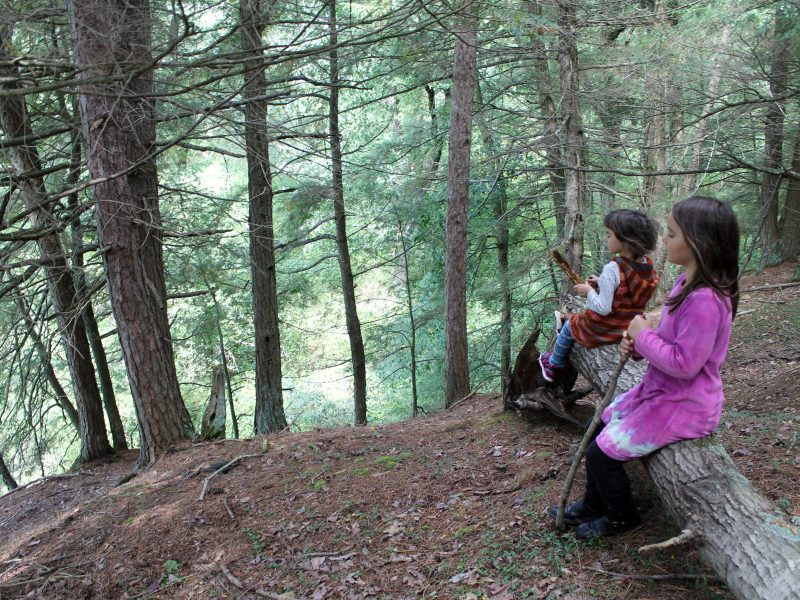Children navigate the world with curiosity. If we trust in this innate desire to learn, we can support their education with confidence and enthusiasm.
Gaining trust in children to explore and gather information about the world around them starts from infancy. They reach out to touch things, and drop them, and taste them, delighting in colour and shape, in the sound of a kind voice or a gentle rhythm. They gain the ability to crawl and toddle and speak words. As they reach school age, this desire to learn and understand continues: Why do leaves change colour in autumn? Why does rain or snow fall from the clouds? Why do we need sleep? Can I make my own clothes or learn how to blacksmith or perform hip-hop dance? If we trust ourselves to provide them with support, encouragement and resources, and we trust them to gather and test information about their world, we will have already come a long way towards them being able to trust their own ability to become knowledgeable and competent.
If an education is more than memorising certain facts and equations, if it goes beyond spoon-feeding children information to pass tests, then children who are confident and engaged in their own learning are in a great position. This does not mean that we just leave them to their own devices. If a child wants to whittle their own wooden spoon, I might provide them with wood and a sharp knife, but also supervision and basic knife safety instruction. If they want to design and sew their own clothes, we look up pattern ideas and take measurements. We do maths together to make sure they have a good grasp of fractions and division. With Sylvia, who struggled with learning to read due to dyslexia, we read aloud, helped with spelling, got her audio books, and kept encouraging a love of story and plot, and now, at 13, she reads for enjoyment and is working on her own short novel.
My children love Minecraft and YouTube. They also love cooking and foraging for wild mushrooms. They like challenging their minds and their bodies. They dive into books about maths and history and science and fairy tales and magic without distinction. No one has told them that learning is tedious and obligatory. We get chemistry kits and art supplies. We attempt to scribe in ancient Mesopotamian cuneiform on clay tablets and bake sourdough. Some days we use a curriculum selectively and some days we wing it completely. Some days we are fairly structured and some days we get lost in nature. This works well for the personalities in our household. Part of trusting ourselves and our children is finding what works for us, and not blindly following educational ‘experts’.
Treating children with trust, respect and acceptance (in general and when it comes to their education) shows them their own worth. They learn to navigate disappointment, handle anxiety and, when needed, ask for help. They can learn about dinosaurs and how igneous and sedimentary rocks are formed. They also learn how to can tomatoes, plant garlic, do yoga, and how to comfort a grieving friend. Some days, they can just daydream and doodle and ride bikes or build a fire and roast marshmallows. Not every moment needs to be an educational experience. Childhood can and should be joy-filled. When my oldest, Cam, chose to attend high school, he got fantastic grades, took college-level courses, and worked a part-time job, while also maintaining friendships and extra-curricular activities. Children can grow up with a loose structure around their education and firmly take up the role of being responsible and timely about meeting deadlines and expectations. It’s all about motivation. When we show children trust within a framework of support and natural limits, they can develop their own confidence in their ability to learn and to become competent, knowledgeable young adults.
____
Nikole Verde is a mama to three unschooling daughters. Along with her husband, they live on a small acreage in the middle of Wisconsin, with a dog named Carly, and various chickens, ducks, and geese. She shares photos and stories of their lives at verdemama.blogspot.com.
____
First published in Issue 70. Accurate at the time the issue went to print.







